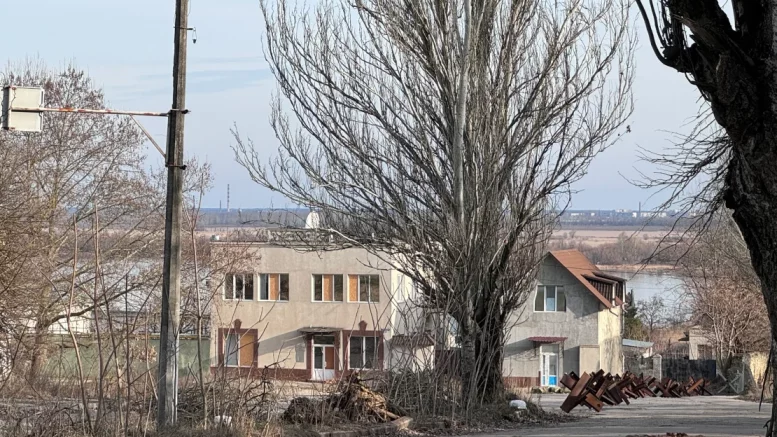Kherson, with its streets scattered with broken glass and the constant rumble of artillery on the horizon, feels as though it’s under distant occupation.
Two years ago, it was the first major Ukrainian city to fall as Russian forces advanced from Crimea. Nine months later, it was liberated by Kyiv’s forces. Yet, as the conflict enters its third year, residents describe the shelling from Russian forces stationed less than a mile away across the Dnipro River as the most intense yet.
Drones and artillery relentlessly pound the city, indicating that Russian forces don’t face the same ammunition shortages reported by Ukrainian troops. Despite the river acting as a natural barrier between Ukrainian and Russian positions, freshly dug trenches line parts of the riverside.
Recent clashes near the small village of Krynky have gained significance, with Russian Defense Minister Sergei Shoigu claiming the village had been cleared by advancing Russian forces. However, this assertion was vehemently denied by Ukraine, with President Volodymyr Zelensky accusing Moscow of conducting a disinformation campaign.
The ongoing dispute over Krynky adds to the prevailing pessimism in Kherson. Repair workers jest about boarding up their 10,000th window in a city where few buildings still have intact glass.
Residents, like Hrigorii, recount the terrifying experiences of living under constant threat. Despite the randomness of the shelling, some civilians have tragically lost their lives. The city’s streets, once vibrant, now feel haunted after enduring two years of artillery duels.
The toll on civilians is evident. Tetyana, a volunteer, describes the adaptability of the residents to the relentless attacks, with some finding solace in impromptu gatherings for prayer and meals.
For 78-year-old Sophia, who struggles with mobility, each day is a challenge. She remains determined to stay in Kherson despite the hardships, clinging to the hope for peace and the return of brighter days.
The news of the ongoing conflict and disputed reports from across the river only add to the anguish of residents like Sophia and her daughter Natalia. Against the backdrop of devastation, their longing for normalcy and the warmth of the sun encapsulates the collective yearning for an end to the relentless suffering inflicted by war.

